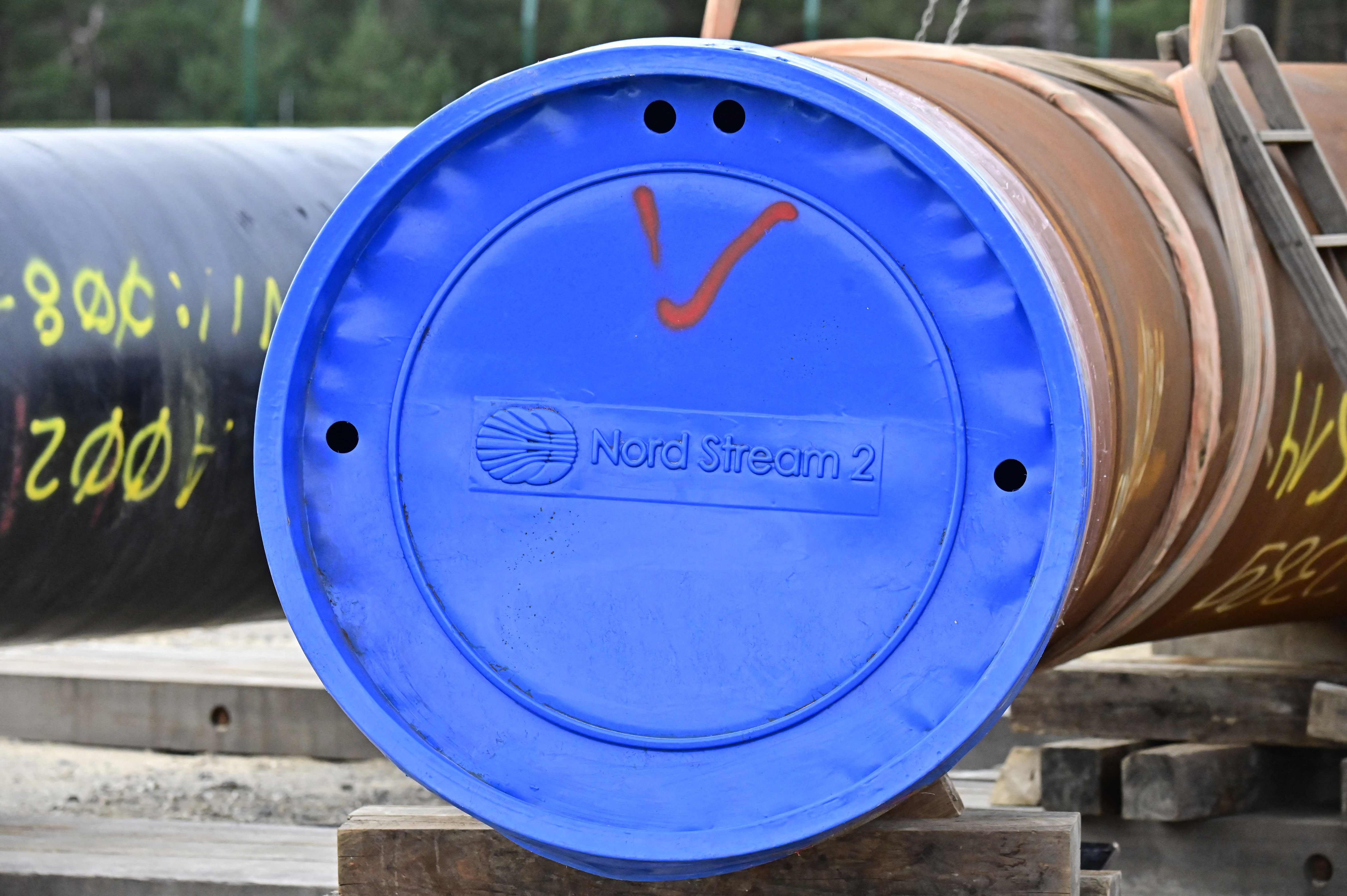Germany suspends pipeline approval, amid rising tensions between Europe and Moscow
Sign up now: Get ST's newsletters delivered to your inbox

The company Nord Stream 2 is based in Switzerland and is wholly owned by Gazprom, Russia's natural gas company.
PHOTO: AFP
BERLIN (NYTIMES) - The approval process to certify Nord Stream 2, an undersea gas pipeline running from Russia to Germany that has sparked concerns about Russian influence in Europe, ground to a halt on Tuesday (Nov 16) when a German regulator said the owners of the pipeline had failed to file the necessary paperwork.
The action means that the recently completed pipeline will not begin supplying gas to Germany anytime soon, and it comes against the backdrop of a politically charged jump in energy prices in Europe and rising tensions between Moscow and Europe over a refugee crisis in Belarus and Russian troops gathering near Ukraine.
The news caused a jump in European natural gas markets, with the price of Britain's natural gas futures soaring more than 17 per cent on Tuesday amid concerns that Europe will run short of gas this winter.
It also comes as Germany finds itself in political limbo, with Chancellor Angela Merkel, a firm supporter of the pipeline project, reduced to a caretaker role while leaders from the Social Democratic, Green and Free Democratic parties debate the makeup of a new government, one that has the potential to be less favourable to its predecessor's pet energy project.
The problem stemmed from the pipeline's foreign ownership. The company Nord Stream 2 is based in Switzerland and is wholly owned by Gazprom, Russia's natural gas company. To manage the German portion of the operation, Nord Stream 2 needed to set up a subsidiary in the country.
The German regulator, the Federal Network Agency, which oversees essential infrastructure, said that Nord Stream 2 had failed to file the proper paperwork to establish the subsidiary. Once the subsidiary has met the necessary bureaucratic requirements, an evaluation can begin anew.
The agency previously set a Jan 10 deadline for the completion of its approval process. But it does not have the final say in the project, which also requires approval from the European Commission.
President Vladimir Putin of Russia has pushed for the German regulators to approve the pipeline as a way of easing Europe's natural gas crisis. Many in Europe suspect that Mr Putin has deliberately held back natural gas to create pressure to approve the pipeline.


